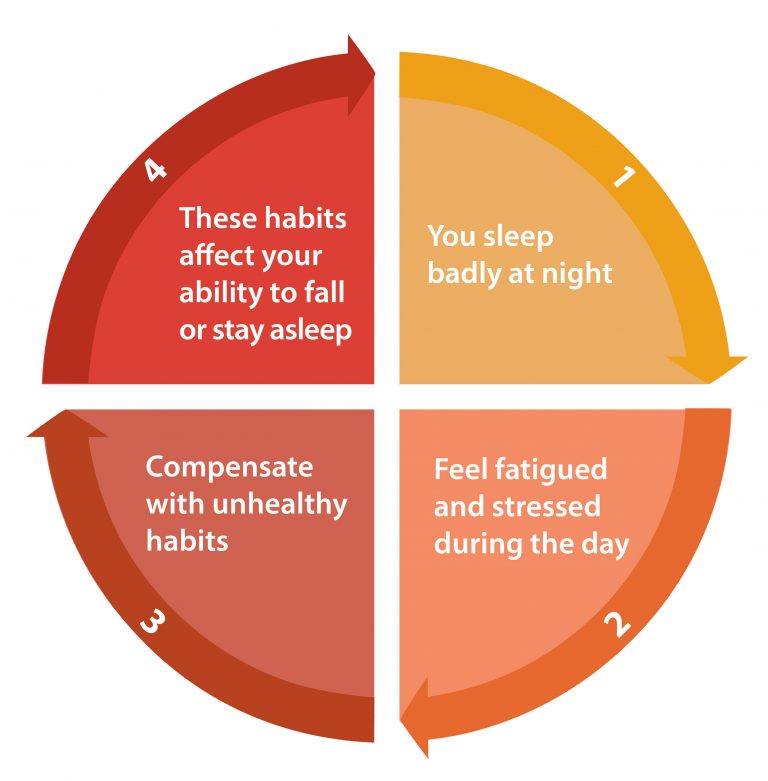Combat Insomnia Naturally, Understanding insomnia and its impact is crucial for finding effective remedies. Insomnia refers to difficulty falling asleep or staying asleep, leading to fatigue, irritability, and impaired cognitive function. Lack of quality sleep can also increase the risk of chronic conditions such as depression, anxiety, and cardiovascular disease. It is important to address insomnia to improve overall health and well-being.
What is insomnia and its common symptoms

Insomnia is a sleep disorder characterized by difficulty falling asleep or staying asleep, resulting in fatigue, irritability, and impaired cognitive function. Common symptoms include tossing and turning in bed, waking up frequently during the night, and feeling tired upon waking up. Understanding these symptoms is essential for finding effective remedies.
The effects of insomnia on overall health
Insomnia can have significant effects on overall health, including increased risk of chronic conditions such as heart disease, diabetes, and obesity. It can also impair immune function, lead to mood disorders like depression and anxiety, and decrease cognitive performance. Taking steps to address insomnia is crucial for maintaining optimal health and well-being.
Establishing a Bedtime Routine
Creating a calming pre-sleep routine can help signal to your body that it’s time to wind down, and incorporating relaxation techniques such as deep breathing or meditation before bed can further promote better sleep.
Creating a calming pre-sleep routine
To create a calming pre-sleep routine, start by setting a regular bedtime and wake-up time, avoid stimulating activities before bed, and create a relaxing environment by dimming the lights, playing soothing music, or taking a warm bath.
Utilizing relaxation techniques before bed
To optimize your sleep, try utilizing relaxation techniques before bed. This can include deep breathing exercises, progressive muscle relaxation, or guided imagery. By practicing these techniques, you can calm your mind and prepare your body for a restful night’s sleep.
Improving Sleep Environment

Optimize your sleep environment for better rest by ensuring your bedroom conditions are ideal for sleep, such as keeping the room cool, dark, and quiet, and reducing electronic distractions. Additionally, choose bedding and pillows that provide comfort and support to promote a restful night’s sleep.
Optimizing bedroom conditions for better sleep
To optimize your sleep environment for better rest, ensure your bedroom conditions are ideal by keeping the room cool, dark, and quiet. Reduce electronic distractions and choose bedding and pillows that provide comfort and support for a restful night’s sleep.
Choosing the right bedding and pillows
When it comes to choosing the right bedding and pillows, opt for those that provide comfort and support for a restful night’s sleep. Consider factors such as pillow firmness, mattress type, and material breathability to ensure optimal sleep conditions. Remember, the right bedding and pillows can make all the difference in achieving a good night’s rest.
Dietary Changes for Better Sleep
To improve sleep quality, make dietary changes by incorporating foods and beverages that promote sleep, such as chamomile tea and kiwi. Avoid consuming stimulants like caffeine or sugary snacks close to bedtime. These simple adjustments to your diet can help combat insomnia naturally and promote better sleep.
Foods and beverages that promote sleep
To promote better sleep, incorporate foods and beverages that promote sleep into your diet. Try drinking chamomile tea or consuming kiwi, both of which have been shown to aid in promoting sleep. These simple dietary changes can help combat insomnia naturally and improve your sleep quality.
Avoiding stimulants close to bedtime
:max_bytes(150000):strip_icc()/Health-sleep-7503659_Horiz-bedb287fb6a84a3ab3c227f8ccb2e4cd.jpg)
Avoiding stimulants close to bedtime is crucial for improving sleep quality. Steer clear of caffeine, nicotine, and alcohol, as they can disrupt your sleep patterns and make it difficult to fall asleep. Instead, opt for herbal tea or warm milk to promote relaxation before bed.
Natural Remedies for Insomnia
Incorporate natural remedies such as chamomile tea, valerian root, or lavender supplements into your bedtime routine to promote relaxation and better sleep. These herbs have calming properties that can help ease insomnia symptoms.
Herbal remedies for improving sleep quality

Incorporate natural remedies such as chamomile tea, valerian root, or lavender supplements into your bedtime routine to promote relaxation and better sleep. These herbs have calming properties that can help ease insomnia symptoms.
Aromatherapy and essential oils for relaxation
Incorporate aromatherapy and essential oils, such as lavender or chamomile, into your bedtime routine for relaxation. Simply add a few drops to a diffuser or apply directly to your pillow to promote better sleep quality.
Incorporating Physical Activity
Incorporating physical activity into your daily routine is a key step in combatting insomnia. Engaging in regular exercise helps regulate sleep patterns and promotes deeper, more restful sleep. Aim for at least 30 minutes of moderate-intensity exercise, such as brisk walking or cycling, most days of the week. Remember to avoid vigorous exercise close to bedtime, as it can have a stimulating effect and make it harder to fall asleep.
The benefits of exercise on sleep quality
Regular exercise offers numerous benefits to sleep quality. It helps regulate sleep patterns and promotes deeper, more restful sleep. Aim for at least 30 minutes of moderate-intensity exercise, like brisk walking or cycling, most days of the week. Avoid vigorous exercise close to bedtime, as it can make it harder to fall asleep.
Best exercises to combat insomnia
To combat insomnia, incorporate exercises such as yoga, tai chi, and Pilates into your routine. These low-impact activities promote relaxation and improve sleep quality. Additionally, aerobic exercises like jogging or swimming can also be beneficial. Aim for at least 30 minutes of exercise most days of the week to reap the sleep-enhancing benefits.
Conclusion of Combat Insomnia Naturally
Summary of natural remedies for better sleep: Incorporate exercises like yoga, tai chi, and Pilates into your routine to promote relaxation and improve sleep quality. Optimize your sleep environment by creating a calming pre-sleep routine, utilizing relaxation techniques, and optimizing bedroom conditions. Make dietary changes by consuming sleep-promoting foods and avoiding stimulants before bedtime. Additionally, consider natural remedies such as herbal remedies and aromatherapy to enhance sleep quality. Maintain healthy sleep habits by establishing a consistent bedtime routine and incorporating physical activity into your daily routine.
Summary of natural remedies for better sleep
Summary of natural remedies for better sleep: Incorporate exercises like yoga, tai chi, and Pilates into your routine to promote relaxation and improve sleep quality. Optimize your sleep environment by creating a calming pre-sleep routine, utilizing relaxation techniques, and optimizing bedroom conditions. Make dietary changes by consuming sleep-promoting foods and avoiding stimulants before bedtime. Additionally, consider natural remedies such as herbal remedies and aromatherapy to enhance sleep quality. Maintain healthy sleep habits by establishing a consistent bedtime routine and incorporating physical activity into your daily routine.
Tips for maintaining healthy sleep habits
To maintain healthy sleep habits, establish a consistent bedtime routine and stick to it. Incorporate physical activity into your daily routine, preferably earlier in the day. Limit exposure to screens and bright lights before bed. Create a comfortable sleep environment by keeping your bedroom dark, quiet, and cool. Avoid consuming caffeine or alcohol close to bedtime. Finally, try relaxation techniques such as deep breathing or meditation to calm your mind before sleep.
For More Blogs visit Aerns

